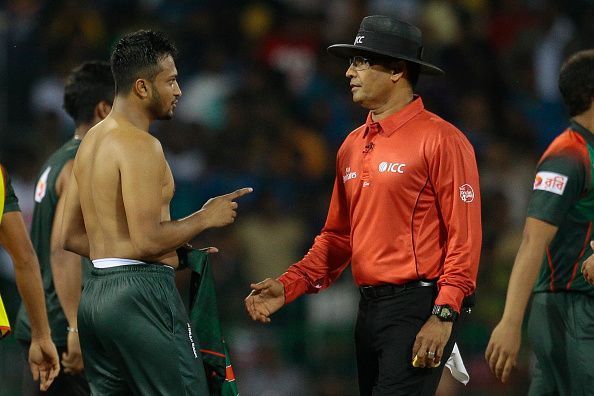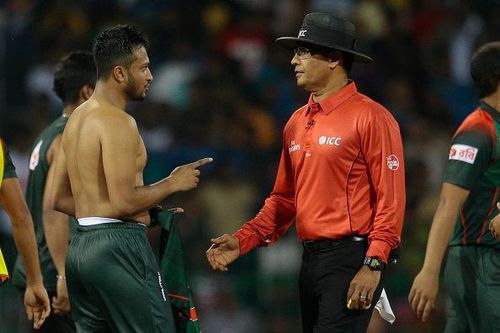
Why Bangladesh Cricket Board should sack Shakib Al Hasan as skipper of T20 side

A captain or a coach getting upset at an umpiring decision is not new in cricket, or sports in general, but I can’t remember too many instances of a captain calling his players off because of his disagreement with the umpire’s decision.
There has been one instance when Sunil Gavaskar tried to take his opening partner Chetan Chauhan off in protest after wrongly being adjudged out by the umpire at MCG against Australia, but Gavaskar since then has, time and again, clarified that his protest was not because of the wrong decision of the umpire, but because somebody from the Australian camp abused him when he was returning towards the pavilion.
But what Shakib Al Hasan did yesterday in the 6th match of the Nidahas Trophy against Sri Lanka was not a reaction to being triggered by the opposition. It was purely a protest against the umpires and the match officials and it was outrageous to say the least.
First of all, I would like to make it clear that in my eyes it was a wrong call by the umpires. The 2nd and the 3rd deliveries of the 20th over of Bangladesh's innings was over the shoulder height of the batsman and, ideally, the 3rd delivery should have been called a no-ball. It was completely normal for Shakib to lose his cool at that as the match was delicately poised at that stage and one wrong call there could have changed the course of the match.
Even the fact that the Bangladesh captain got involved in an animated discussion with the 4th umpire and tried to put his point across in a rather aggressive fashion was understandable given the situation of the game, but it was totally shocking when he gestured towards his players to leave the ground. He didn’t do it just once in which case he could have been given the benefit of the doubt. He actually repeated it 4 or 5 times and if it was a Yes-man out there in the centre who had responded to his call, it would have been turned out to be an absolute embarrassment for all the stakeholders concerned including Bangladesh themselves.
What was good from Bangladesh’s point of view was that a cool, calm and collected individual like Mahmudullah was present on the ground and he did not respond to the captain’s call. Not only did he turn his own back on him, he told Rubel Hossain, his partner at the crease, not to go off in what was a rare display of sanity during those few minutes of chaos. Mahmudullah then went on to score 12 runs off the next 3 balls to actually win the game for Bangladesh with one of the most extraordinary finishes in T20 cricket.
While it all ended well for Bangladesh, the Bangladesh Cricket Board (BCB) must not sweep it under the carpet. They must introspect and ask themselves if Shakib is the right man to lead their team in the future.
However great a player Shakib might be, for him to have such instincts is dangerous, especially when he is in charge of the team. A leader can’t be a quitter and Shakib was clearly quitting there. He, in his mind, must have been sure that his team had no chance of winning the game, otherwise, he would never have tried to call them off even if that umpiring decision didn’t go his way.
For a leader to first not back his team, not back the specialist batsman out there to get the job done, and then almost dictate his decision of quitting to the team, raises serious question marks over his leadership style. A man with this level of patience should not be allowed to lead an international sports side in a fiercely competitive environment at all.
By sacking Shakib straightaway, Bangladesh will not only be making the right call, as someone like Mahmudullah is surely more capable of captaining the side given his calm demeanour and ability to read the game, but Bangladesh will also set an example to the rest of the cricketing world as to how much they respect the game and to what extent they can go to punish even their own players if they bring the game into disrepute.